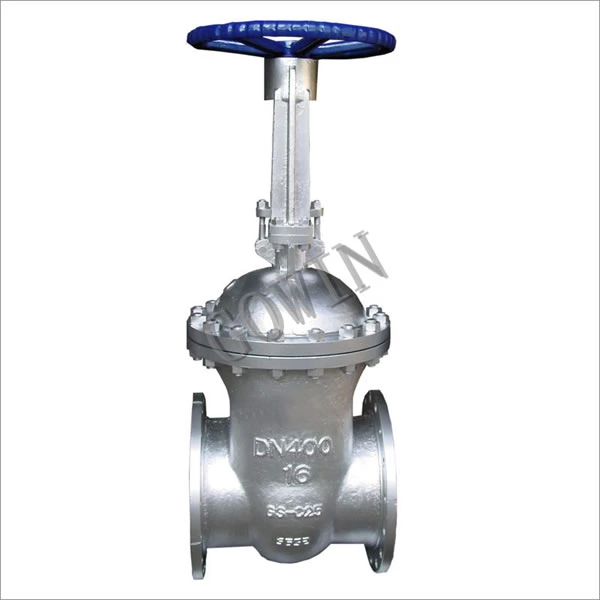Table of Contents
Toggle
Industrial valves comprise several types, and two of the most widely used are the solid and flexible wedge gate valves.
Both solid wedge gate valves and their flexible wedge gate counterpart are helpful when industries need to exercise precise control over flow, offer tight sealing, minimize drops in pressure, and maintain constant durability in high-pressure or high-temperature systems.
Distinguish the differences between these two vital types of valves, tackling the following pointers:
– What are solid wedge gate valves? What are flexible wedge gate valves?
– Solid vs. flexible wedge gate valve: The differences
– Tips when choosing the right wedge gate valve
– Getting yours from Gowin
Quick Overview of Gate Valves
Gate valves are responsible for managing fluid and gas flows. They either provide a barrier for fluid flow or a clear passageway, depending on whether the valves are closed or open. Industries such as oil and gas, water treatment, power generation, chemical processing, and pharmaceuticals use gate valves.
Such valves have several sub-types, and among them are the wedge gate valves. Under this category are the flexible wedge gate valve and their solid counterpart, as well as the split, parallel, and through-conduit types. This time, you will focus on learning about a solid wedge vs. flexible wedge gate valve.
Your Solid Wedge Gate Valves
Simply put, the solid type features a much simpler and robust design with a single-piece wedge fitting tightly against the valve’s seat. Its layout is pretty straightforward for several of your industries.
The top industries that make use of these valves are the high-pressure, high-temperature industries like oil and gas, power plants, and petrochemicals.
Your Flexible Wedge Gate Valves
What is a flexible wedge gate valve? Differing from a solid wedge disc gate valve, the flexible wedge type offers a more adaptive design, hence its name. It features a wedge that can “flex” to better accommodate the alignment of the valve’s seat and deformation within its body.
The waterworks, HVAC, and general industries are the top applications of these flexible wedge gate valves. Or those with high-temperature fluctuations.

Solid vs. Flexible Wedge Gate Valve: Points of Comparison
1. Design and Construction
What is a solid wedge in a gate valve? As for the solid wedge gate valve, it is characterized by a flat surface, which is responsible for its reliable sealing, essential for maintaining the integrity of systems under varying pressures.
Note that its flexible wedge counterparts are for varying temperatures. Solid wedge gate valves are durable against the most demanding industrial applications, resistant to wear and tear, and have their own versatility that industries adore.
Meanwhile, the distinguishing point of a flexible wedge gate valve lies on its annular groove, which is in-charge of the valve’s adjustment and flexing, so it can work not only under varying pressures, but also under varying temperatures.
This particular design paves the way for stronger adaptability, easier operation, and tighter seal.
2. Valve Mechanisms
With regards to the valve’s mechanisms, solid wedge gate valves depend on a more rigid, singular wedge piece for sealing. While they are strong against temperature fluctuations, they are less adaptable here.
When you need valves for a more dynamic environment, choose the flexible wedge gate valve. With its particularly cut disk, flexing is possible, so they work best under fluctuating conditions. While both utilize linear motion, the latter excels in more fluid scenarios.
3. Durability and Performance
Both are durable and superior in performance, but one edges the other in specific ways. Remember that solid wedge gate valves excel in stable environments, while the other is best for dynamic scenarios. However, the solid type may struggle with misalignments or thermal expansion, and the flexible type may have reduced strength in corrosive or abrasive applications.
4. Nuclear Applications
It is interesting to note that both those valves can be applied in nuclear settings, too. However, your choice will depend on the requirements of your system. Flexible wedge gate valves are best for scenarios with high temperature and pressure changes. A reliable seal must be met.
However, solid wedge gate valves are meant for stable conditions, providing long-term reliability. But keep in mind that when using either of the two in nuclear settings, care must be practiced to prevent operational roadblocks.
Tips on Choosing the Right Wedge Gate Valves
Check out the following tips when it comes to choosing which type of wedge gate valve to purchase:
- Evaluate fluid conditions to determine whether you need the right gate valve for stable or fluctuating environments.
- Think of your sealing needs. Solid wedges depend on rigidity for tight closure, while flexible wedges adapt to misalignments.
- Assess durability, considering solid wedges are best for high-pressure and abrasive scenarios, while flexible wedges are for corrosive applications.
- Check operational effort. Flexible wedges are easier to operate than solid wedges.
- Match the valve with the industrial application you are requiring.

Gate Valves by Gowin
Our brand, Gowin, is an industry leader in providing top-notch gate valves. We design our industrial gate valves to meet the demands of several industrial applications. Valuing durability and precision, our experts use the best materials, such as stainless steel, cast steel, and copper to construct our valves. To see the technical specifications of our wedge gate valves, visit this link. Find out what’s in store for you by connecting with our team ready to assist you.







